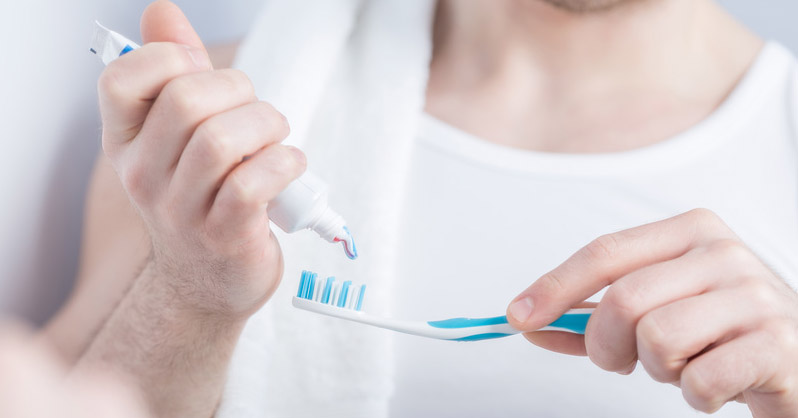
image © olly – fotolia.com
Although most people are completely unaware of it, numerous personal care products are now known to include thousands of plastic minuscule balls called microplastics or plastic microbeads. They act as scrubbing agents for these products.
Microbeads are now commonly found in toothpaste products and they have superseded the traditional biodegradable alternatives like nut shells and salt crystals.
There are different kinds of plastics, and the plastic microbeads in many toothpastes and other healthcare products are made of polyethylene (PE). Other kinds of plastics include polypropylene (PP), polyethylene terephthalate (PET), polymethyl methacrylate (PMMA) and nylon. [1] The microbeads in your toothpaste are usually smaller than 1mm.
When you wash out your toothpaste, the microbeads, as they are non-biodegradable, flow through the sewers, and since they are so small, the filters are not able to retain them. Ultimately, they end up in the rivers and oceans. It’s also possible that you will ingest plastic particles from them.
Microbeads have been slipped into products with hardly a mention as if they are entirely harmless, inert. As if they are a “nothing” ingredient. However, various studies have pointed out how microbeads are actually harming the environment. The main problem for us lies in the fact that these microbeads are non-biodegradable and enter the food chain. Meaning, when they end up in the sea, they disrupt the natural habitat of marine life, and they are consumed by aquatic creatures including fish. When this happens, the pollution circles back to us, when we end up eating marine products that are already contaminated with microbeads.
A research programme led by Professor Richard Thompson of the University of Plymouth shed light on the role of microplastic in marine pollution. It concluded that there is indeed a widespread of microbeads throughout Earth’s marine environment, and it is accumulating rapidly. [2]
This study describes the problems that are caused by microbeads, and it pinpoints toothpaste and other healthcare products with microbeads as direct sources of this form of pollution.
As more and more studies are conducted, companies are being urged to think twice about releasing products that have microbeads as an ingredient. As if it wasn’t obvious…
Consumers are being asked to be more vigilant about using products that contain microbeads.
An organization called Beat the Microbead, a group initiated by Plastic Soup Foundation & Stichting De Noordzee, has created an app that helps consumers identify if a product has microbeads or not.
You can download the app at https://beatthemicrobead.org. Using the app, you can scan the barcode of a dental care product and it will indicate, through a color coding scheme, whether it contains microbeads or not. [3]
Red means there are microbeads in the product.
Orange means there are still microbeads but the manufacturers are already in the process of replacing them.
Green means the product is good to go, as it is free from plastic microbeads.
Organizations and lawmakers are dedicated to eradicating the problem of microbeads, especially because it can qualify as an unnecessary additive to personal care products, making the issue a highly avoidable one.
While there is great calling for manufacturers to cooperate, consumers can also help with the issue. If you own some now, you can return them to the store or seal them properly and dispose properly. If everyone starts to help now, this addition to the plastic nightmare that we are facing may be addressed.
References:
[1] Microplastics: scientific evidence. https://beatthemicrobead.org/en/science
[2] Leading scientists express concern over micro plastics in the ocean. https://www.plymouth.ac.uk/news/leading-scientists-express-rising-concern-over-microplastics-in-the-ocean
[3] The International Smartphone App. https://beatthemicrobead.org/en/in-short
★ Get My Books - 100% FREE:
😳 Tinnitus And Brain Health?
After 47 years of studies and countless brain scans done on more than 2,400 tinnitus patients, scientists at the MIT Institute found that in a shocking 96% of cases, tinnitus was actually shrinking their brain cells.
As it turns out, tinnitus and brain health are strongly linked.
Even more interesting: The reason why top army officials are not deaf after decades of hearing machine guns, bombs going off and helicopter noises…
Is because they are using something called "the wire method", a simple protocol inspired by a classified surgery on deaf people from the 1950s...
★ How To Get Rid Of Nail Fungus:
★ Does Your Salad Contain This Vegetable?
★ 20 Natural Painkillers In Your Kitchen (Video):
★ Men's Prostate Health:

2. Famous Chef Sheds 60lbs Researching New Paleo Recipes: Get The Cookbook FREE Here
3. #1 muscle that eliminates joint and back pain, anxiety and looking fat
4. 7 odd foods that KILL your abdominal fat (surprising fat-fighters)
5. The TRUTH about bread (Will surprise you!)
6. [PROOF] Reverse Diabetes with a "Pancreas Jumpstart"
7. Here's What Happens When You "Unlock Your Hip Flexors"
8. The #1 WORST food that CAUSES Faster Aging (beware -- Are you eating this?)
The #1 Muscle That Eliminates Joint And Back Pain, Anxiety And Looking Fat
By Mike Westerdal CPT
Can you guess which muscle in your body is the #1 muscle that eliminates joint and back pain, anxiety and looking fat?
This is especially important if you spend a significant amount of time sitting every day (I do, and this really affects me in a big way!)
Working this "hidden survival muscle" that most people are simply not training because no-one ever taught them how will boost your body shape, energy levels, immune system, sexual function, strength and athletic performance when unlocked.
If this "hidden" most powerful primal muscle is healthy, we are healthy.
Is it...
a) Abs
b) Chest
c) Glutes
d) Hip Flexors
Take the quiz above and see if you got the correct answer!
P.S. Make sure you check out this page to get to know the 10 simple moves that will bring vitality back into your life:
If you enjoyed this page:














